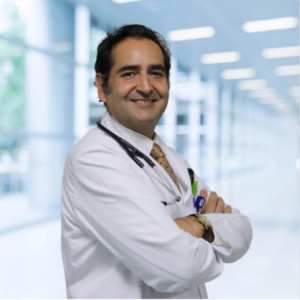Allergology is the branch of medicine that focuses on identifying and treating allergic reactions. Allergies occur when the immune system mistakenly responds to harmless substances, causing a range of symptoms.
A visit to an allergist, along with targeted tests, helps determine the triggers of these reactions. This information allows the specialist to design a personalized treatment plan to effectively manage symptoms and improve overall well-being.
Allergy treatment : Best prices in Turkey
Do you suffer from allergies? Turquie Santé offers allergology treatment in Turkey with expert allergists at affordable prices.
- Expert care: Highly qualified allergists provide accurate diagnosis and effective treatment.
- Clear prices: Consultations cost around 150–300 USD, and full testing or treatment programs range from 500 to 2,000 USD.
- Teleconsultation: Get a free online consultation and a personalized treatment plan from home.
You'll also receive precise advice and recommendations on how to manage your allergies more effectively in daily life.
Take control of your allergies today! Contact us for a free teleconsultation and start your journey to a healthier life.








